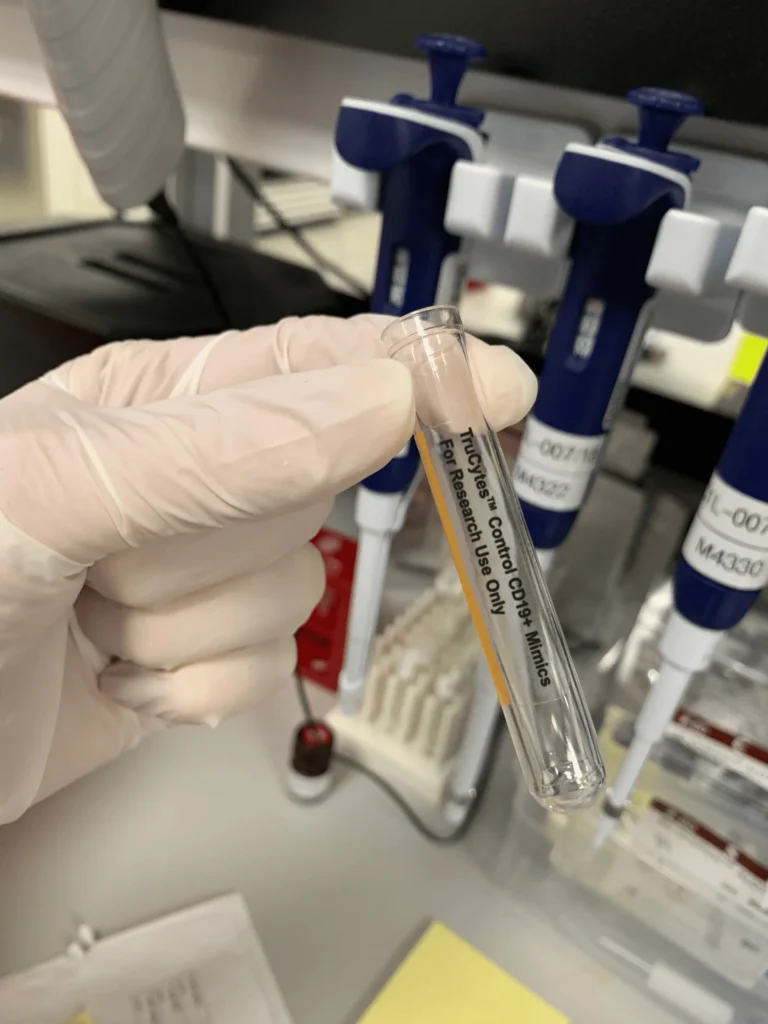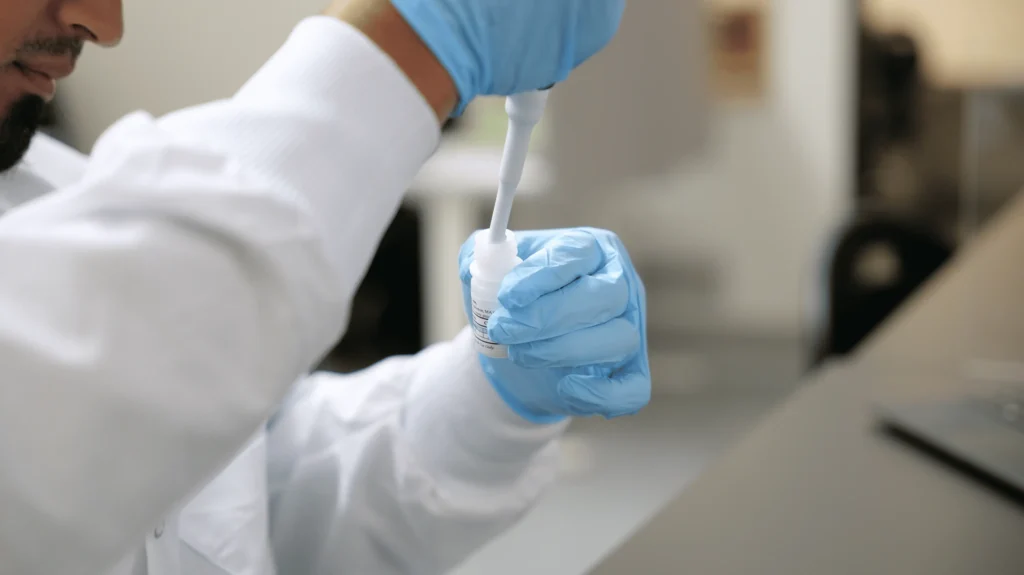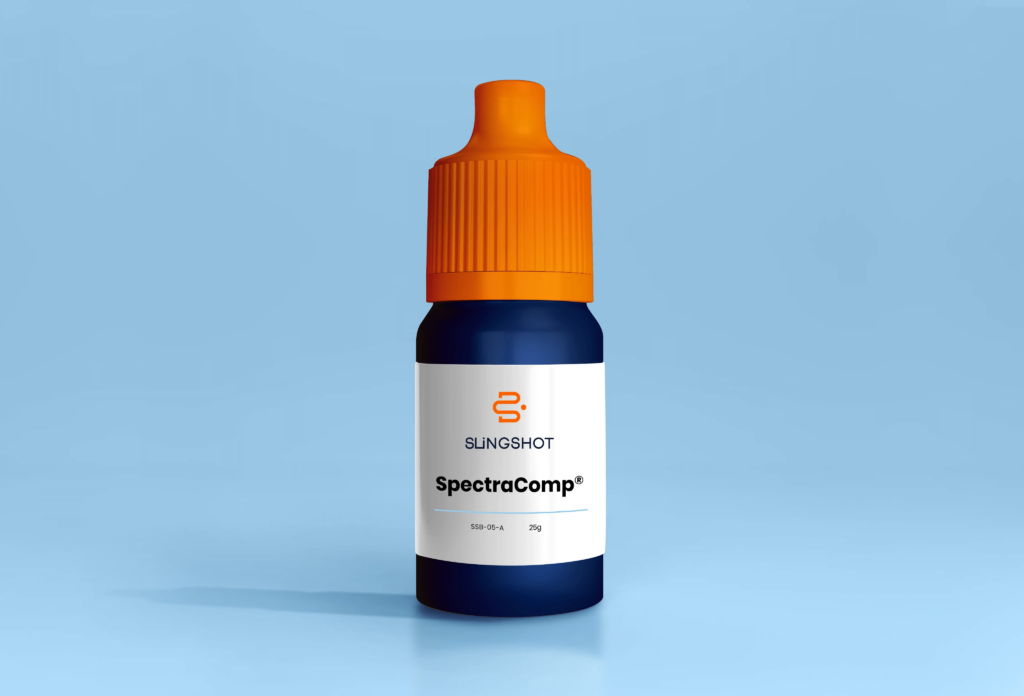
Cell-derived products comprise the basis of important healthcare technologies worldwide. With respect to diagnostics, 750 blood samples are tested every second in the U.S. alone, and each of these samples relies on cell-derived references for accurate measurement. In addition, unlike most traditional pharmaceutical modalities, adoptive cell therapies critically depend on cell-derived control material, often self-generated to assess manufacturing performance and product quality. Historically, cell-derived reagents have been sourced from donors, both human and animal, to meet these needs, leading to supply chain constraints, high cost, and unwanted variability.
To learn more about Slingshot Biosciences and its on-demand synthetic cell platform, I caught up with the biotech’s Co-Founder and CEO Dr. Jeffrey Kim. Here’s what he had to say.
Explain Slingshot Biosciences.

Slingshot Biosciences is a biotech company that is focused on making advanced diagnostics and therapeutics more accessible to the world. After extensive customer diligence, we learned that cell-derived reagents represent a key challenge to the widespread adoption of diagnostics, the cost of drug development and manufacturing of therapeutics such as adoptive cell therapies (ACTs). In addition, the instability of cell-derived reagents drives a large captive market for contract research organizations (CROs) by demanding complex workflows to effectively normalize data for clinical trials. We sought to address this problem, which impacts a wide range of markets and applications, from the “bottom up” by developing cell-like products that would have better precision, stability, repeatability, manufacturing flexibility, and lower cost than their cell-derived counterparts. This was the genesis of Slingshot.
Explain Slingshot Biosciences’ pipeline.
Slingshot Biosciences utilizes a conserved core of manufacturing technologies to generate a suite of product offerings in the controls, diagnostics, and cell therapy markets. Our initial focus centered on traceability and standardization controls including our flagship synthetic white blood cell product. The concept is simple: We can repeatedly make a high-precision, stable, cost-effective alternative to cell-derived reagents for any market where cells are used. This allows for a level of inter- and intra-laboratory standardization that was not possible without extensive labor and cost. We next have a series of reagents that are used in IVD applications where we can tune our synthetic cells to match specific disease states, instantly, including their optical, biochemical, and biophysical properties such that our products are indistinguishable from actual target cells. These products allow, for the first time, rare diseases, and those in development to have access to off-the-shelf reference material, improving signal-to-noise during diagnostics and development. Finally, we are leveraging our scaffolding technology to develop advanced products that mimic the function of cells for applications in adoptive cell therapies and therapeutic scaffolding. By controlling all the biophysical properties of a cell, including complex signaling cascades, we can develop products that functionally mimic a cell, including therapeutic applications.
Slingshot is “building the world’s first on-demand synthetic cell platform.” Explain in detail the platform.
Our platform and expertise draw from the intersection of material science, biophysics, and cell biology to make a scalable, low-cost, and precise manufacturing platform for synthetic cells. We can replicate any property of a cell — no matter how complex — on demand and in a laptop-sized box that we can deploy in virtually any setting. This system allows us to make custom cell mimics in a matter of minutes, in contrast to the months or years it takes to develop a suitable biologically derived reference cell or to source a cell bank for a program of interest. At a high level, we are taking advantage of progress made in the semiconductor industry combined with advances in material science, electronics, and biochemistry to create a single-source solution for any cell-derived product need, in any market.
What is flow cytometry, and why is Slingshot’s platform a better solution?
Flow cytometry is a common analytical technique that measures thousands of cells, at high throughput, in a liquid stream. The technology provides powerful statistics for measuring disease states but has been challenged by a lack of reference material that can consistently provide baseline data, from which to compare a patient sample. Our products dramatically enhance the power of flow cytometry, by providing, for the first time, multi-year longitudinal stability and quantitative protein measurements using existing instrumentation. This opens a wide range of applications, both diagnostic and for drug development, that couldn’t be implemented before, and doesn’t require specialized hardware. Our products effectively “supercharge” every flow cytometer out there by working from the ground, up on this challenge.
What’s next for Slingshot Biosciences?
We are eager to scale our commercial organization and get our products into the hands of researchers, clinicians, and ACT manufacturers so we can begin to chip away at the cost, time, and challenge associated with implementing advanced diagnostic and cell therapy technologies, worldwide. We have an expanded menu of products in key verticals that will be released over the next 12 months and will be sharing more as we progress. We announced new Series A financing in July 2021 and are excited to continue our momentum.



